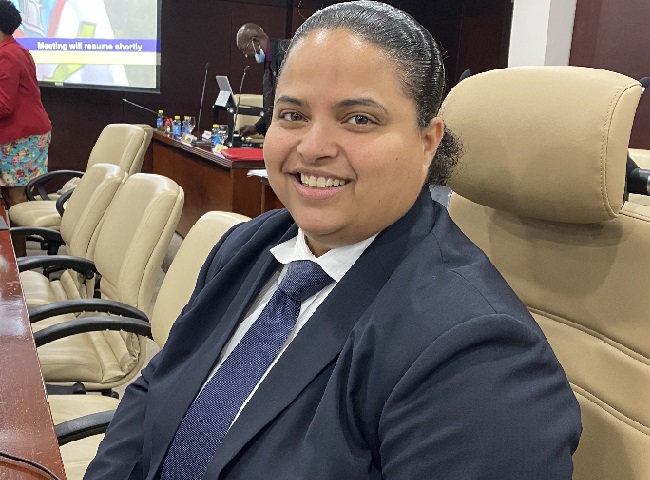PHILIPSBURG – A lot of controversy in the last months regarding legal public tenders have been circulating, not only in the news but also on social media. There have been reports of various companies who placed bids for legal tenders approaching the Ombudsman because they believe the tendering process did not take place in a fair and transparent manner. These concerns echo the concerns of the Ombudsman in her systemic investigation report of June 27th, 2022 regarding the investigation into the tendering and awarding process of the Solid Waste Collection contracts for 2021-2026.
The infamous 2022 Ombudsman report highlighted concerns regarding the composition of the evaluation committee, the methods chosen for the scoring of bidders, to the Terms of Reference not being properly followed or enforced, and the Minister of VROMI refusing to provide critical information for the investigation. Ultimately, the report concluded that the tendering and awarding process for solid waste collection was neither fair nor sufficiently transparent.
“You would think that the Ombudsman report would have motivated the Minister to be more cautious and transparent with future legal tenders, especially given the grave concerns highlighted by the high council,” Peterson said. “Unfortunately, this does not seem to be the case. On the contrary, we actually see similarities between the handling of the tendering exposed in that report and the current approach to tendering that is happening right now. There are outstanding questions sent by this faction to the Minister regarding the current tendering process, questions sent on April 3rd, 2023, with a reminder sent on May 10th, 2023.
Some of the questions requested that documentation be provided to Parliament, documentation that pertained to the Minister’s process of decision making, in particular a last-minute memo, allegedly dated March 15th, 2023, from the Acting Head of Infrastructure Management, which was used to justify the Minister’s decision, as well as a last-minute memo from the Minister himself, dated March 15th, 2023, explaining that the Minister of VROMI suddenly no longer needs a national decree from the Governor to be signed in order to execute a tender. This has been a legal part of the process since we became a country. One day after the questionable memo of the Minister of VROMI and after the similarly strange memo of the Acting Head of Infrastructure were signed and submitted, on March 16th, 2023, the tender was quickly approved by the Council of Ministers.”
“We have been calling on the Minister of Finance to establish the national decree containing general measures for the process of tendering for the whole of government since the start of this term, but that keeps getting put in the backseat. Because the longer you don’t regulate that very important process, the more these questionable decisions go unnoticed,” Peterson concluded.
The most recent item that Peterson sees becoming an issue is the new public tender that recently came out for the new Parliament building. The description is to find one candidate to design, finance, build, lease, operate, manage, and transfer the new Parliament building. All of this without any rules of tender being put in place in a national decree containing general measures, as the law prescribes in the National Accountability Ordinance.
“And this new public tender also raises more questions,” Peterson states. “If a candidate is to fully design and finance the building, what is the role of the departments within VROMI? Since the law is lacking the LB-Ham, is it the intention of the Minister to now outsource everything, to make sure money is being given to the right people, to ensure that his obvious pre-determined choices are secure? The tricks seem to be developing a pattern, but it should also be mentioned that using SOAB to “evaluate” tenders after they have already been done does not give them any more legitimacy. The SOAB evaluates numbers; it doesn’t evaluate processes and procedures. Thus, the process itself of decision-making within all departments in the Ministry of VROMI can fall into question in many cases, as the Ombudsman also reported.”
Important to note, according to Peterson, is that it appears as though the new Parliament building will not be owned by the Government of St. Maarten. As the tender states, Government is seeking bidders who will build it, lease it to the government, manage and operate it, with the intention that ownership is eventually transferred to St. Maarten. “Only one candidate is meant to conduct all these works described,” Peterson concludes, “which raises the question if the Ministry is, by way of this legal tender, trying to drive through its own previously shared vision for the new Parliament building. It seems the goal is to distribute as many tenders as possible, using the March 15th memo to justify the lack of a national decree by the Governor, and to use all this “work” as leverage for the coming campaign time. I only hope that this new Parliament building does not come with ridiculous amounts of money being paid through “maintenance contracts” to family members of existing political officials, as was much the case with the current Parliament building. The people are exhausted of these old tricks; for my part, I will keep asking the same questions until we receive real answers regarding these processes.”




























